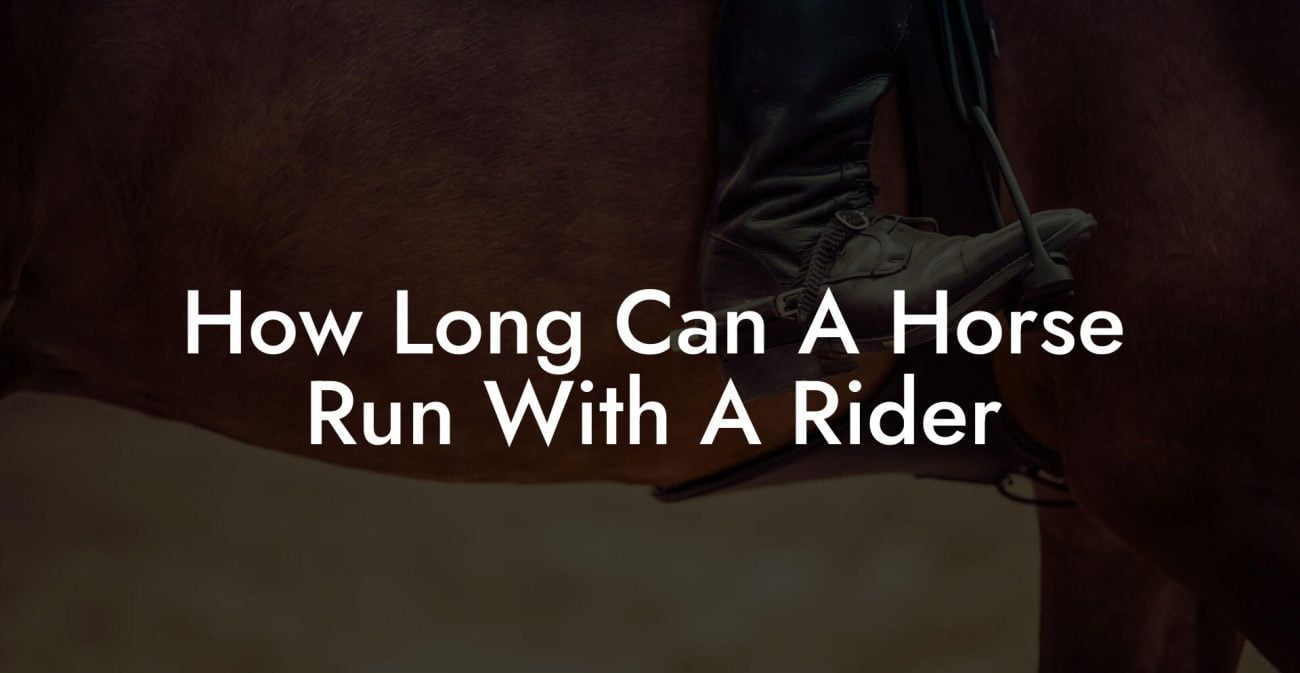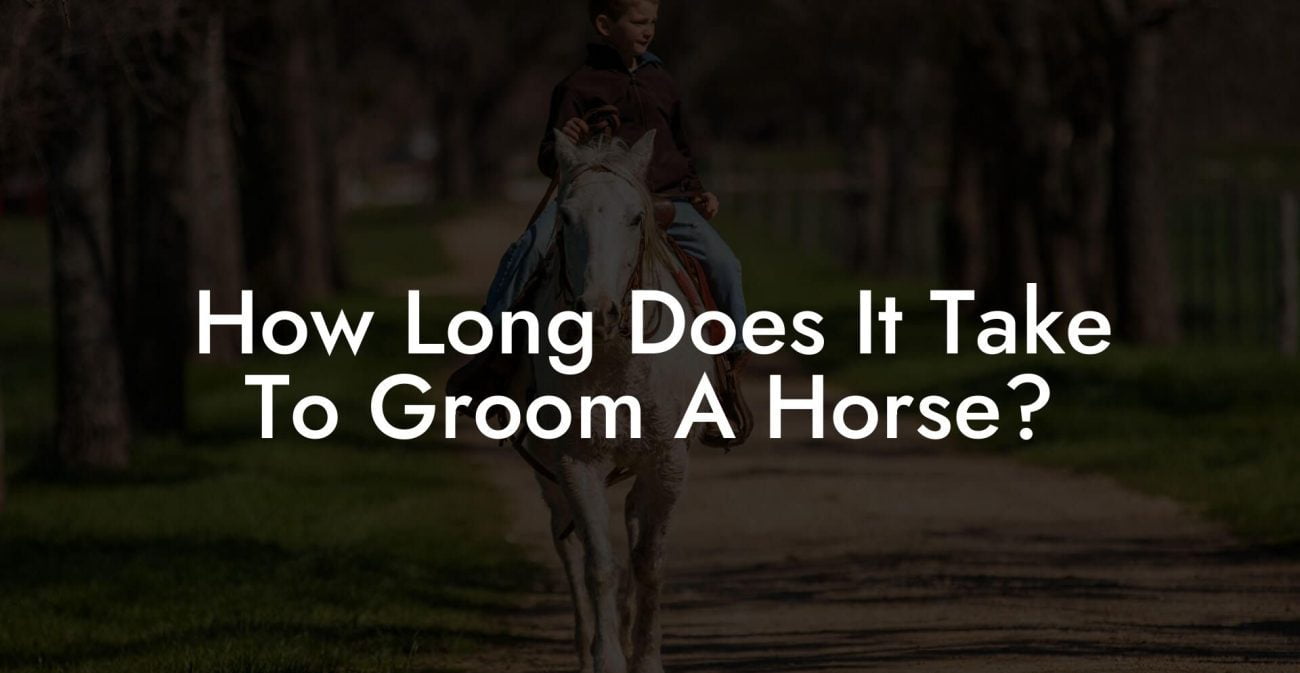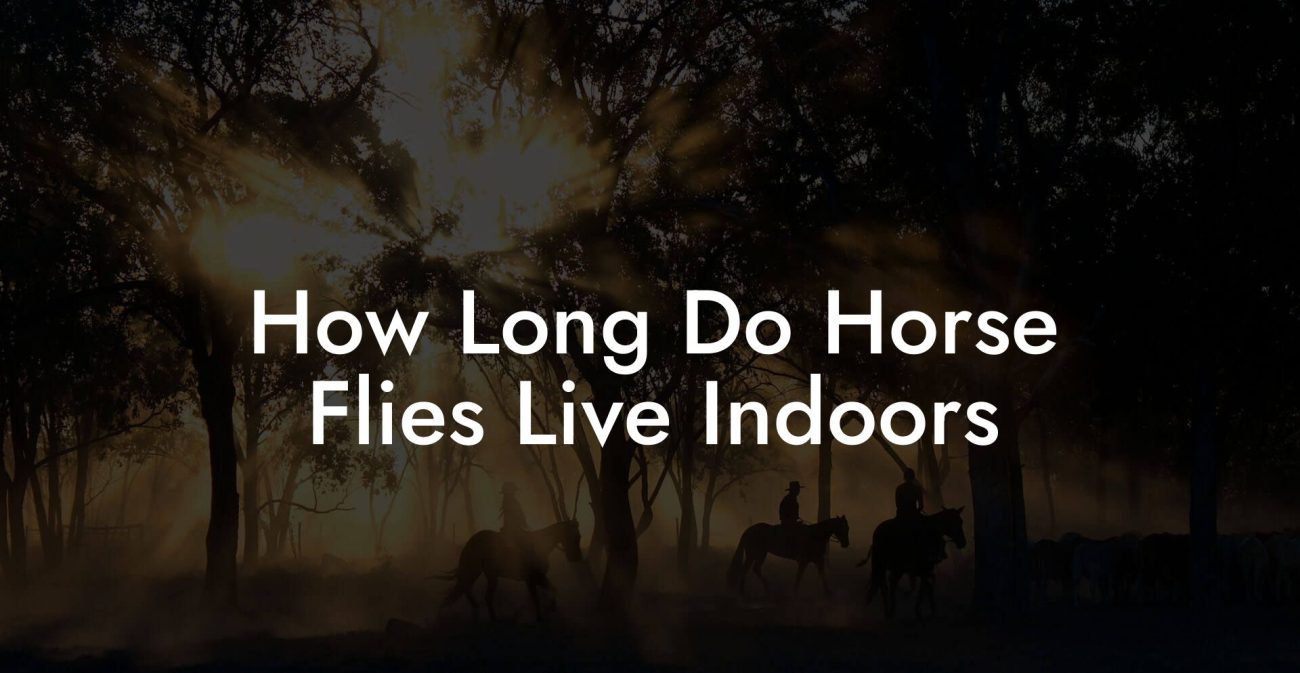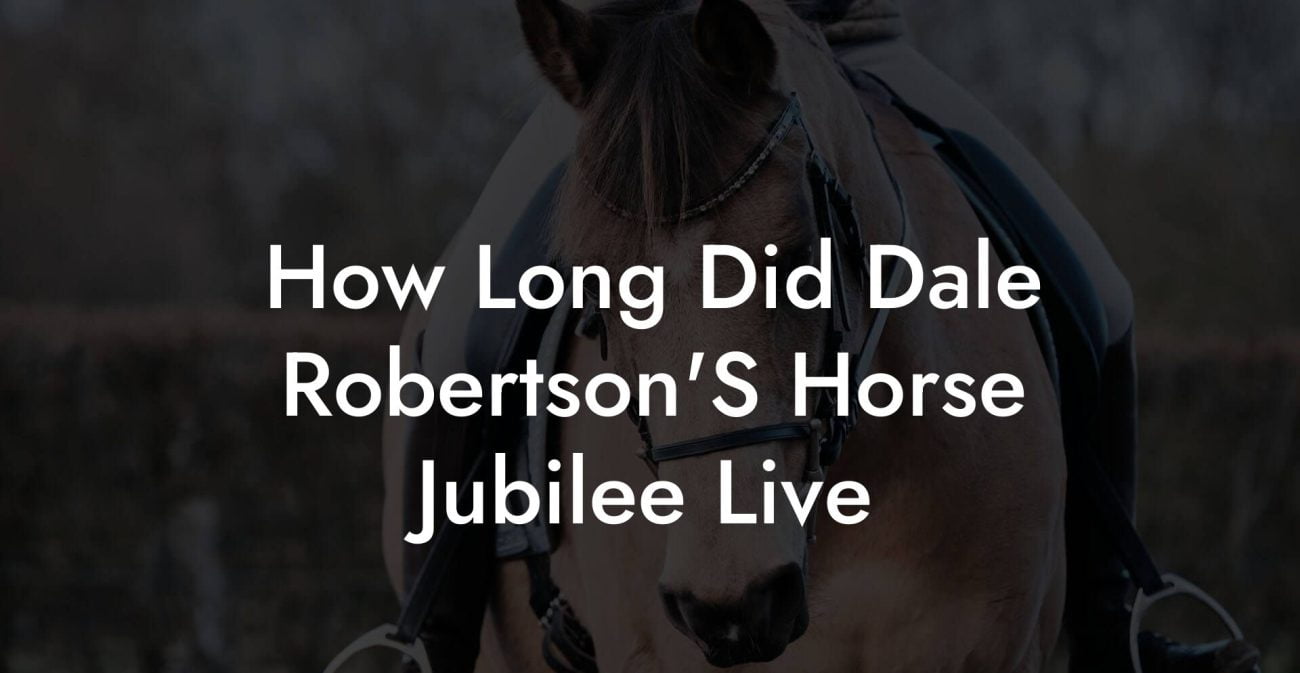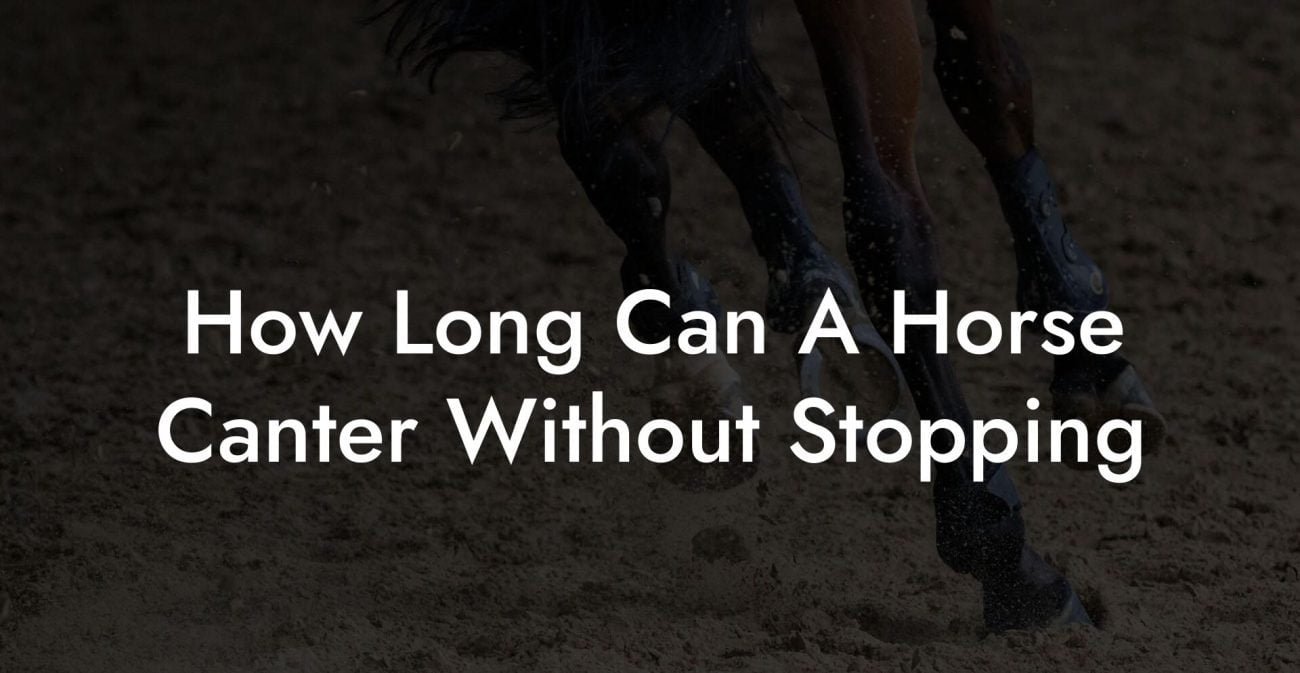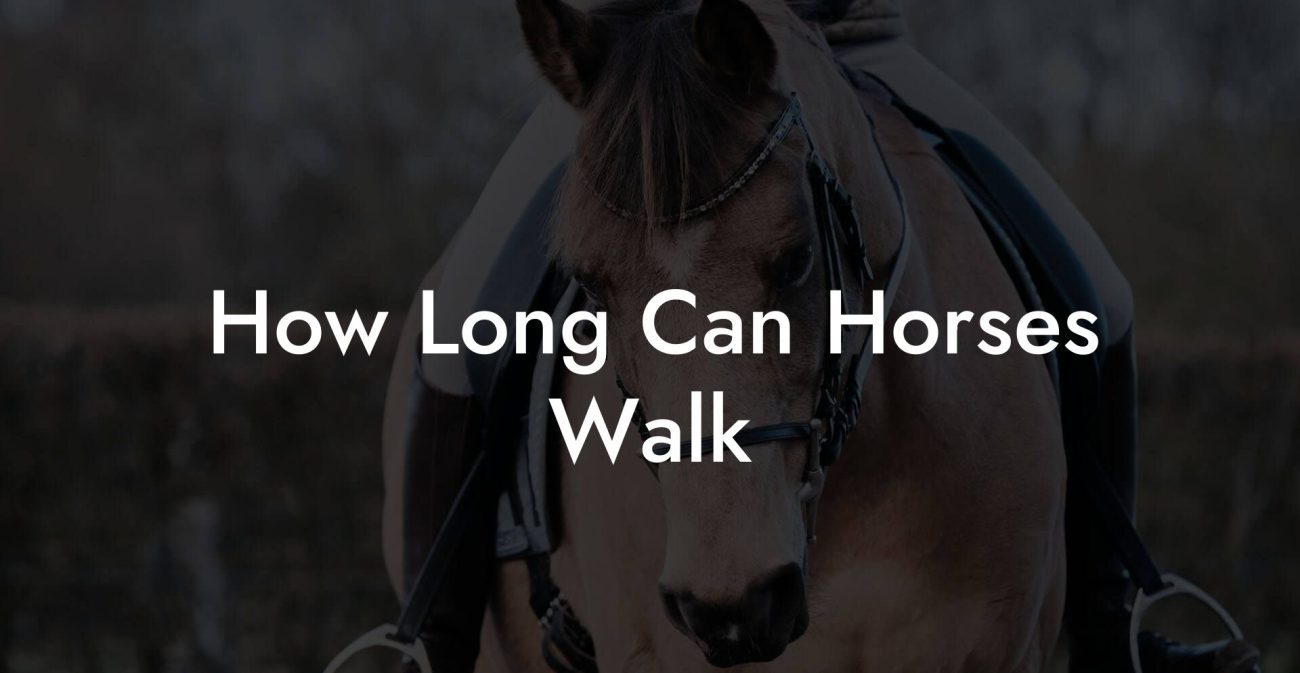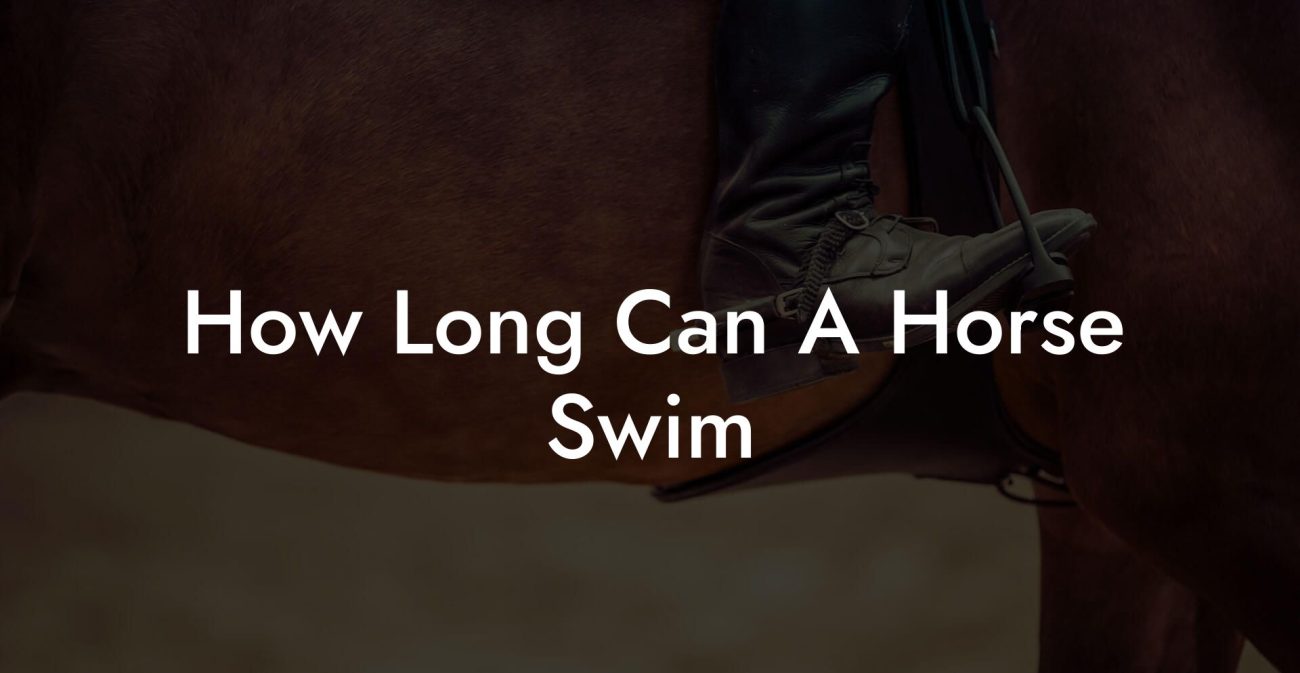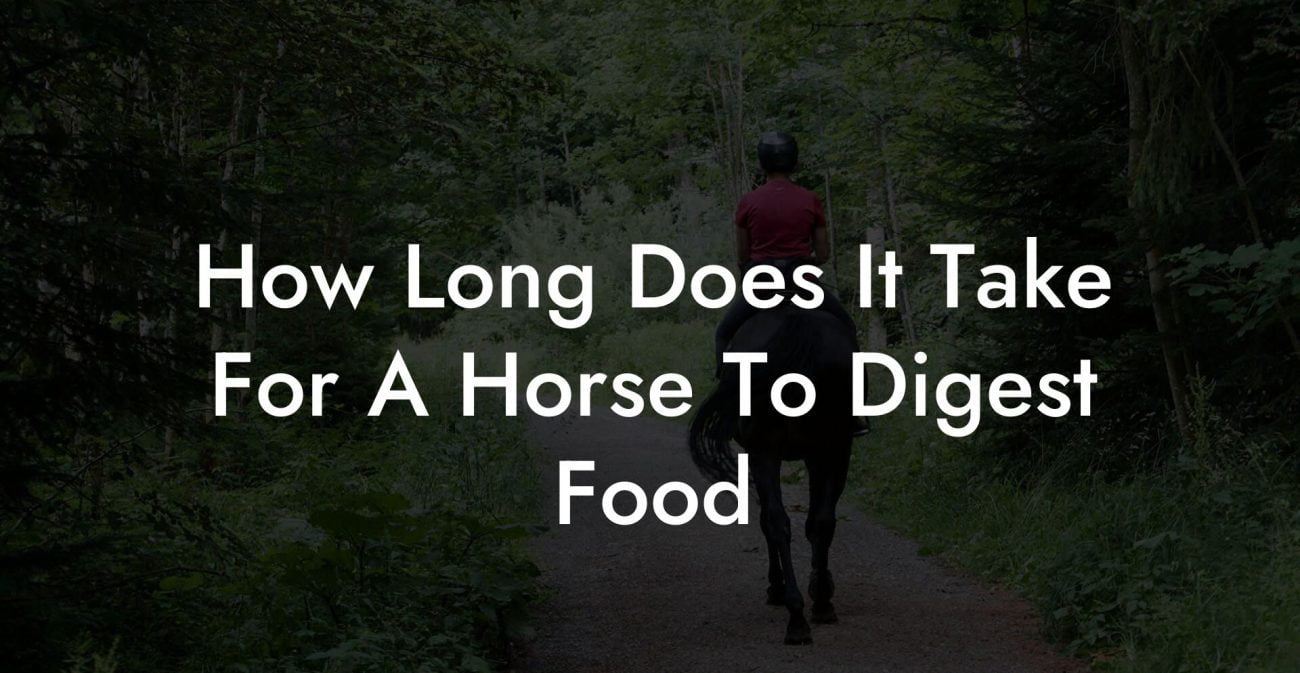Ever wondered if your horse’s hay is more than just a green, crunchy snack – that it’s a carefully balanced cocktail of nutrients, flavor, and even a touch of luxury for your four-legged friend? In this deep-dive guide to “Types Of Hay And Costs,” we’re unraveling all the secrets behind the hay bale, from the basics of what hay actually is to the nitty-gritty details on how different types and qualities can affect your wallet and your horse’s health. Buckle up, fellow equine aficionados, especially if you’re a Gen-Z or millennial owner who believes that caring for your horse should be as informed, fun, and financially savvy as planning the ultimate festival experience.
Quick Links to Useful Sections
- Understanding the Basics: What Exactly Is Hay?
- Popular Types of Hay for Horses: A Closer Look at Your Options
- 1. Timothy Hay: The Go-To Grass
- 2. Alfalfa Hay: The High-Protein Powerhouse
- 3. Orchard Grass: A Sweet Spot for Moderation
- 4. Bermuda Grass Hay: A Southern Staple
- 5. Mixed Grass Hay: The Balanced Buffet
- 6. Specialty Hay and Forage Blends
- The Cost Factor: What Influences Hay Prices?
- 1. Quality and Nutritional Content
- 2. Type and Variety
- 3. Regional Production and Availability
- 4. Seasonality and Weather Conditions
- 5. Harvesting and Processing Techniques
- How to Choose the Right Hay for Your Horse
- Your Horse’s Nutritional Needs
- Quality Over Quantity
- Test Before You Invest
- Storage Facilities and Handling
- Balancing Costs and Value
- Storing and Handling Hay: Keeping It Fresh and Nutritious
- Tips for Proper Storage
- Handling With Care
- Cost Analysis: Bulk, Baled, and Net Wrap Options
- Bulk Hay Purchases
- Baled Hay
- Net Wrap Hay
- Nutritional Value and Your Horse’s Health: More Than Just Feed
- Practical Tips for Managing Hay Costs
- Environmental and Ethical Considerations in Hay Production
- Resources and Community Support: Your Next Steps
- FAQ: Everything You Need to Know About Hay Types and Their Costs
- Your Journey to Cost-Effective, Optimal Horse Care
Understanding the Basics: What Exactly Is Hay?
Let’s kick things off with the fundamentals. Hay is simply dried forage, grasses, legumes, or a mix, that’s been preserved for feeding livestock, particularly horses. It’s nature’s original, cost-effective cereal, and while it might seem straightforward, there’s a fascinating world behind every bale. The key is in the quality, variety, and timing of the harvest. Just like that perfectly ripened avocado you saw on Instagram, hay has to be just right to pack a nutritional punch.
In essence, hay is the unsung hero of horse care. Not only does it serve as the foundation of your horse’s diet, but it also contributes to dental health, digestive function, and overall well-being. Quality hay can mean the difference between a prancing, healthy horse and one that’s grumpy and undernourished. And yes, understanding the nuances here can even save you money in the long run, even if your horse isn’t scrolling TikTok.
Popular Types of Hay for Horses: A Closer Look at Your Options
When we talk hay, think of it as the artisanal bread of the equine world, a diverse crop with its own personality and nutritional perks. Let’s break down the most popular types of hay, each with their own blend of benefits and, yes, cost points.
1. Timothy Hay: The Go-To Grass
Timothy hay is a perennial favorite, known for its balanced nutritional profile and widespread availability. It’s a medium to coarse-textured hay that is especially popular for adult horses with low energy needs. Think of it as the reliable indie band that everyone loves, consistent and crowd-pleasing without any frills.
Nutritional nuggets: Timothy hay is lower in protein and calories than alfalfa, making it ideal for horses with low work demands or those prone to weight gain. It’s also a terrific source of fiber, aiding in healthy digestion, all wrapped in a cost-effective package.
Cost considerations: Typically, Timothy hay tends to be moderately priced. Prices vary seasonally and regionally, but you can expect a steady price that balances quality and affordability.
2. Alfalfa Hay: The High-Protein Powerhouse
If hay were graded into “fancy” vs. “everyday,” alfalfa would definitely be in the fancy category. Rich in protein, calcium, and energy, alfalfa hay is often the premier choice for young, growing horses, lactating mares, or those in high-performance disciplines. It’s like the protein-packed smoothie of the hay world.
Nutritional nuggets: With higher protein and calcium levels, alfalfa hay supports muscle development and bone strength, but it’s also much richer in calories. This makes it perfect for horses that are training hard or need an extra boost, but less ideal for those that are more sedentary.
Cost considerations: Because of its nutritional density and the care required in its cultivation, alfalfa typically runs higher on the cost spectrum. Expect to pay a premium if you’re shopping for top-tier alfalfa.
3. Orchard Grass: A Sweet Spot for Moderation
Orchard grass falls in between Timothy and alfalfa, offering a balanced blend of energy and nutritional content. It’s slightly sweeter in taste, which can make it a hit for horses that are picky eaters. Think of it as that underrated indie track you stumble upon, full of surprises and extremely likable.
Nutritional nuggets: It provides a reliable source of fiber and energy without the extremes of low or high calorie content. This makes orchard grass a smart choice for adult horses with moderate activity levels.
Cost considerations: Prices for orchard grass can be quite competitive, making it an appealing option if you’re trying to balance nutrition with budget constraints. Its cost-effectiveness has made it a staple in many equine diets.
4. Bermuda Grass Hay: A Southern Staple
Originating from warm-weather regions, Bermuda grass hay is well-known for its durability and fine texture. It’s a popular option for horses in the southern United States, where climate conditions favor its growth. Think of it as the vintage record of hay, classic and regionally beloved.
Nutritional nuggets: Bermuda grass is high in fiber and low in protein, making it an excellent choice for overfed horses that need more restraint in their diet. It’s particularly beneficial for those prone to colic and digestive disturbances.
Cost considerations: This type of hay can sometimes be more economical in warmer climates but might carry a premium if shipped to cooler regions where it isn’t as readily available. Transportation and seasonality can have a significant impact on price.
5. Mixed Grass Hay: The Balanced Buffet
Sometimes variety is the spice of life, and your horse’s diet is no exception. Mixed grass hays incorporate several types of grasses and legumes, providing a well-rounded profile of nutrients. It’s like a mixed playlist that gives you a little bit of everything, designed to keep your horse’s taste buds and tummy happy.
Nutritional nuggets: The nutritional value of mixed grass hay depends on the specific blend, but it generally offers a balanced supply of fiber, vitamins, and minerals. It supports overall digestive health and is suitable for a wide range of horses.
Cost considerations: Mixed grass hay is often competitively priced due to its diverse sources. However, be sure to check the composition and quality, sometimes you get exactly what you need, and sometimes you end up with a subpar mix.
6. Specialty Hay and Forage Blends
For those looking to provide their equine superstar with a gourmet dining experience, specialty hays, including medicated hay, organic hay, or hay fortified with specific nutrients, offer an extra edge. These blends may incorporate additional ingredients to address specific dietary needs, like joint support or enhanced muscle recovery.
Nutritional nuggets: Specialty blends are formulated with targeted nutritional goals in mind. They may include extra vitamins, minerals, or even herbs known for their anti-inflammatory properties.
Cost considerations: As might be guessed, specialty hays generally come with a higher price tag. But if your horse’s unique needs call for a dietary edge, the added expense could be a smart investment in their long-term health.
The Cost Factor: What Influences Hay Prices?
Having unraveled the various types of hay and their nutritional intricacies, it’s time to get into the dollar details. Much like comparing avocado toast prices at a hipster café, hay prices can seem bewildering until you understand the underlying factors. Here’s what determines the cost of hay:
1. Quality and Nutritional Content
Higher quality hay, defined by its nutritional density, low dust, and minimal mold, naturally demands a steeper price. Premium hay that meets strict standards in drying, storage, and harvesting is like that limited-edition sneaker drop: exclusive, in-demand, and worth every penny.
2. Type and Variety
Different types of hay carry different costs. Alfalfa, for instance, usually tops the price charts compared to conventional Timothy or Bermuda grass. The mix of grasses in mixed hay can also affect pricing, depending on which components dominate the blend.
3. Regional Production and Availability
Much like fashion trends that vary from coast to coast, hay prices are heavily influenced by regional factors. Areas with a strong hay production infrastructure may offer lower prices due to supply abundance, while regions that rely on imported hay could face higher costs due to transportation and demand.
4. Seasonality and Weather Conditions
Seasonal variations play a massive role in hay pricing. A drought or unseasonably wet weather can impact hay yields dramatically. During peak growing seasons, an abundant supply might drop prices, whereas off-seasons or poor harvest conditions typically drive up costs.
5. Harvesting and Processing Techniques
The method of cutting, drying, and baling hay can also impact its cost. Mechanized harvesting and modern conditioning systems tend to produce a more consistent product, though sometimes at a higher operational cost. Organic hay, which is processed without synthetic chemicals, usually comes at a premium due to the intensive labor and certification processes.
How to Choose the Right Hay for Your Horse
Picking the perfect hay for your horse is more than just a transaction, it’s an art form that considers your horse’s age, workload, health status, and even personality. Here are some key considerations to help you decide:
Your Horse’s Nutritional Needs
Start by assessing what your horse specifically needs. Young, growing horses, performance horses in heavy work, and lactating mares have higher protein and energy requirements compared to senior horses or those with a more sedentary lifestyle. Consult with an equine nutritionist or veterinarian to match the hay type with your horse’s individual dietary profile.
Quality Over Quantity
It might be tempting to scoop up the cheapest hay available, but low-quality hay can lead to digestive issues, allergies, and overall poor health. Invest in hay that’s clean, dust-free, and harvested at its nutritional peak, even if it means paying a little extra.
Test Before You Invest
If you’re switching hay suppliers or trying out a new type, start with a small batch to see how your horse responds. Monitor your horse’s digestion, coat, and energy levels for any signs of change. Your horse’s reaction is the ultimate review, think of it as a taste-test before committing to a full subscription.
Storage Facilities and Handling
Even the finest hay can lose its nutritional prowess if not stored correctly. Inspect the storage conditions of your hay supplier. Moisture, poor ventilation, or prolonged storage times can degrade hay quality, leading to mold formation and loss of vital nutrients.
Balancing Costs and Value
As a savvy horse owner, you know that value isn’t just about the sticker price but the overall benefits to your horse’s health. Evaluate the nutritional impact against the price; sometimes, a slightly higher cost can provide long-term savings by reducing future health issues.
Storing and Handling Hay: Keeping It Fresh and Nutritious
Buying great hay is only half the battle; how you store and handle it can make all the difference in preserving its quality. Proper storage not only prevents spoilage but also maintains the nutritional integrity of the hay, ensuring your horse gets the best fuel possible.
Tips for Proper Storage
Just like your favorite pair of sneakers, hay needs a cool, dry, and well-ventilated spot to stay in tip-top shape. Here are a few storage tips:
- Avoid Moisture: Damp hay can quickly become a breeding ground for mold and bacteria. Ensure that your storage area is dry and well-ventilated.
- Keep It Covered: Use tarps or hay sheds to protect your hay from the elements, especially during rainy seasons.
- Inspect Regularly: Regularly check for signs of mold or spoilage, and remove any compromised bales to prevent contamination.
- Off the Ground: Store hay off the ground to avoid moisture absorption and rodent infestations.
Handling With Care
How you handle hay once it’s delivered can affect its longevity. Use clean equipment when moving and unloading hay, and try to limit the number of times the hay is unwrapped and rewrapped. Each additional handling step can expose hay to air and moisture, slightly degrading its quality.
Cost Analysis: Bulk, Baled, and Net Wrap Options
When planning your hay budget, it’s essential to understand the differences between bulk hay, baled hay, and net wrap options. By understanding these options, you can choose a purchasing strategy that aligns with your financial goals, storage capacity, and horse care needs.
Bulk Hay Purchases
Bulk hay, often sold directly from the field or at local feed stores, is a popular choice for those looking to save money. Buying in bulk can significantly lower the per-unit cost, but it does demand sufficient storage space and proper handling techniques. If you have a stable with ample storage space and a reliable supplier, bulk hay can be a fantastic cost-saving option.
Pros: Economies of scale, lower per-pound cost. Cons: Requires considerable storage space and careful monitoring to avoid spoilage.
Baled Hay
Baled hay is the most common form of hay sold to horse owners, and for good reason. Whether round bales or small square bales, this option offers the convenience of defined portions and easier handling. Baled hay is typically more expensive than bulk hay, but it’s easier to store and manage, especially if you only have room for a few bales.
Pros: Convenient, easier to handle and store. Cons: Slightly higher cost per pound compared to bulk.
Net Wrap Hay
Net wrap hay represents a modern twist on traditional baling methods. The hay is wrapped in a durable plastic netting, which helps to maintain its shape and protect it from the elements. This form is great for preventing wastage from wind and rain, though it can be a bit more expensive.
Pros: Excellent protection against the elements, maintains nutritional quality. Cons: Often comes with a small premium due to sustainable packaging and handling.
When comparing these options, it’s crucial to think about both the immediate expense and the long-term benefits for your horse’s well-being. In the end, a small premium for well-preserved, high-quality hay may lead to better performance and fewer veterinary visits, savings that go a long way.
Nutritional Value and Your Horse’s Health: More Than Just Feed
Beyond just costs, the nutritional value of your hay plays a critical role in your horse’s daily performance, overall health, and longevity. Think of hay as the foundation of your horse’s diet. Just as a trendy superfood smoothie can transform your mornings, a high-quality, well-balanced forage can be transformative for your equine companion.
The key nutritional components of hay include fiber, protein, vitamins, and minerals. Fiber aids in digestion and prevents issues like colic, while the right amount of protein supports muscle repair and growth. Furthermore, vitamins and minerals, especially in specialty hay blends, can promote coat health, immune function, and even hoof strength. When selecting hay, consider your horse’s activity level, age, and any specific health requirements. Remember, a well-fed horse is not only healthier but also more energetic and happier.
Also, keep in mind that the appearance of hay isn’t the only indicator of its quality. The aroma, color, and even the texture all signal whether it was harvested and stored at the optimal time. A vibrant, greenish hue typically indicates that the hay retains a high level of chlorophyll and nutrients. In contrast, hay that’s too dry or has taken on a brownish tint may have lost some of its vital nutrients, kind of like that avocado that sat out for too long.
Practical Tips for Managing Hay Costs
Let’s face it, hay isn’t free, and smart budgeting is essential for every horse owner. Here are some practical tips to help you maximize value without compromising on quality:
- Shop Around: Don’t settle for the first bale you see. Compare prices and quality among several suppliers, and consider local farms that might offer better deals.
- Buy in Bulk When Possible: If you have the storage space and know what you’re doing, bulk purchases can substantially lower your costs.
- Seasonal Buying: Adjust your purchasing schedule to coincide with peak hay production seasons when prices tend to drop.
- Invest in Proper Storage: Good storage protects your investment. A simple shed or tarpaulin setup can extend the life of your hay and prevent costly spoilage.
- Monitor Your Horse’s Needs: Tailor your hay purchases to your horse’s dietary needs. Overfeeding or providing overly rich hay to a sedentary horse can lead to health issues, which in turn may incur additional costs.
By implementing these strategies, not only do you keep your costs in check, but you also create a more sustainable, health-conscious approach to horse care.
Environmental and Ethical Considerations in Hay Production
In today’s conscientious world, even hay has a backstory. Understanding how hay is produced can give you insights into its environmental impact and help you make ethical choices. Much like the locally sourced, organic options you seek at your favorite café, sustainable hay production prioritizes responsible farming practices.
Look for hay that is produced using environmentally friendly methods, minimizing the use of chemical fertilizers and pesticides, practicing proper crop rotation, and ensuring soil health. Organic hay, for instance, might carry a higher price tag, but it also guarantees that your horse is eating feed raised with fewer chemicals and a lower environmental footprint.
Ethical sourcing is increasingly important to Gen-Z and millennial horse owners who value transparency and sustainability. Investigate your supplier’s practices, ask for certifications, and choose providers who prioritize eco-friendly methods. This not only benefits your horse but contributes to a healthier planet, a win-win scenario that aligns perfectly with modern values.
Resources and Community Support: Your Next Steps
Navigating the world of hay types and costs can seem as complex as selecting the perfect filter for your Insta story, but remember, you’re not alone. There’s a vibrant community of horse enthusiasts, nutrition experts, and seasoned equine professionals ready to share advice, reviews, and firsthand experiences.
Consider joining online forums, social media groups, or local equine clubs where members regularly discuss their hay choices and cost-saving strategies. These communities are a treasure trove of information, from detailed product reviews to seasonal price updates that can help you secure the best deals. Many websites now offer price comparison tools and quality ratings which can be a real lifesaver when budgeting.
Furthermore, keep an eye out for webinars, workshops, and conferences focused on modern horse care. It’s a fantastic way to network with industry experts, discover new trends, and even get insider tips on sustainable, high-quality hay. Your next steps might include connecting with local equine nutritionists or signing up for newsletters that provide alerts on market changes.
Ultimately, every informed decision you make in the realm of hay purchasing contributes to your horse’s overall health and your peace of mind. Empower yourself with knowledge and lean on the community, you might just find that the journey to optimal horse care is as rewarding as it is educational.
FAQ: Everything You Need to Know About Hay Types and Their Costs
We’ve compiled some of the most frequently asked questions from horse owners like you. Whether you’re a seasoned rider or a first-timer in the hay game, these FAQs will help iron out any lingering doubts.
1. What is the difference between Timothy hay and Alfalfa hay?
Timothy hay is a grass hay known for its balanced fiber and moderate nutritional content, ideal for adult horses with low energy requirements. Alfalfa hay, on the other hand, is a legume that offers higher protein, calcium, and calories, making it suitable for young, high-performance, or lactating horses.
2. How do seasonal changes affect hay prices?
Weather and growing conditions play a big role in hay production. During peak harvest seasons, abundant supply leads to lower prices, while droughts, excessive rain, or off-season harvesting typically drive up costs.
3. Which type of hay is best for a picky eater?
Orchard grass and mixed grass hay tend to have a more appealing taste and texture for horses that are finicky about their food. Testing small batches can help determine what works best for your horse.
4. Is buying hay in bulk a good idea?
Buying in bulk can significantly reduce your per-pound cost, but it requires proper storage options to prevent spoilage. If you have adequate space and conditions, it can be a great cost-saving strategy.
5. What should I look for in high-quality hay?
Look for hay that is green, aromatic, free of dust and mold, and consistent in texture. Quality hay will have been harvested at the peak of its nutrient content and stored under optimal conditions.
6. How does organic hay differ in price and quality?
Organic hay is produced without synthetic fertilizers and pesticides, which often results in a higher price tag due to the more labor-intensive practices. However, it offers reduced chemical exposure and is an excellent choice for environmentally conscious owners.
7. Can the type of hay impact my horse’s health beyond nutrition?
Absolutely. The right hay supports not only nutritional health but also dental and digestive well-being. Poor quality hay can lead to respiratory issues from dust or even digestive problems, so investing in high-quality forage is key.
8. What are my options for small storage spaces?
For those with limited space, baled hay offers convenience and ease of handling. Additionally, some suppliers offer net wrap options that help preserve quality in smaller storage setups.
9. How do I know if a supplier uses sustainable practices?
Look for certifications, ask for detailed information on their growing and harvesting methods, and research online reviews. Sustainable practices are often highlighted in company literature or on their website.
10. Is it necessary to have a professional evaluate my horse’s hay needs?
While many horse owners become experts over time, consulting with an equine nutritionist or veterinarian is always a smart move when making significant dietary changes or if your horse has special needs.
Your Journey to Cost-Effective, Optimal Horse Care
In the world of horse care, every decision matters, from the color of your tack to the quality of hay you choose. The journey to mastering the perfect hay balance is not just about keeping your wallet happy; it’s about ensuring your horse enjoys a diet that promotes health, vitality, and well-being all year round. Whether you’re a millennial riding into the sunset or a Gen-Z enthusiast eager to revolutionize equine care, smart hay choices set the stage for success.
With the strategies, nutritional insights, and cost-saving tips outlined above, you’re armed with all the data you need to select the best hay for your horse. Embrace this knowledge like your favorite playlist on a long drive, confident, informed, and ready to take action!
From understanding the nuances between Timothy and Alfalfa to delving into the environmental ethics behind your feed, every section of this guide was designed to empower you. The key is to balance quality with cost, ensuring that your horse’s well-being isn’t compromised by budget constraints.
Now is the time to re-evaluate your hay purchases, explore local suppliers, and perhaps even experiment with new varieties. Remember, modern horse care isn’t just about following tradition, it’s about embracing innovation and making informed decisions that benefit both your equine friend and your lifestyle.
So, as you embark on this journey of cost-effective, optimal horse care, celebrate every step, whether it’s finding the perfect bale at a bargain or discovering a new, nutrient-packed forage that makes tails wag and hooves prance. Your path to a healthier, happier horse is paved with informed choices and a commitment to excellence. Happy hay hunting!


